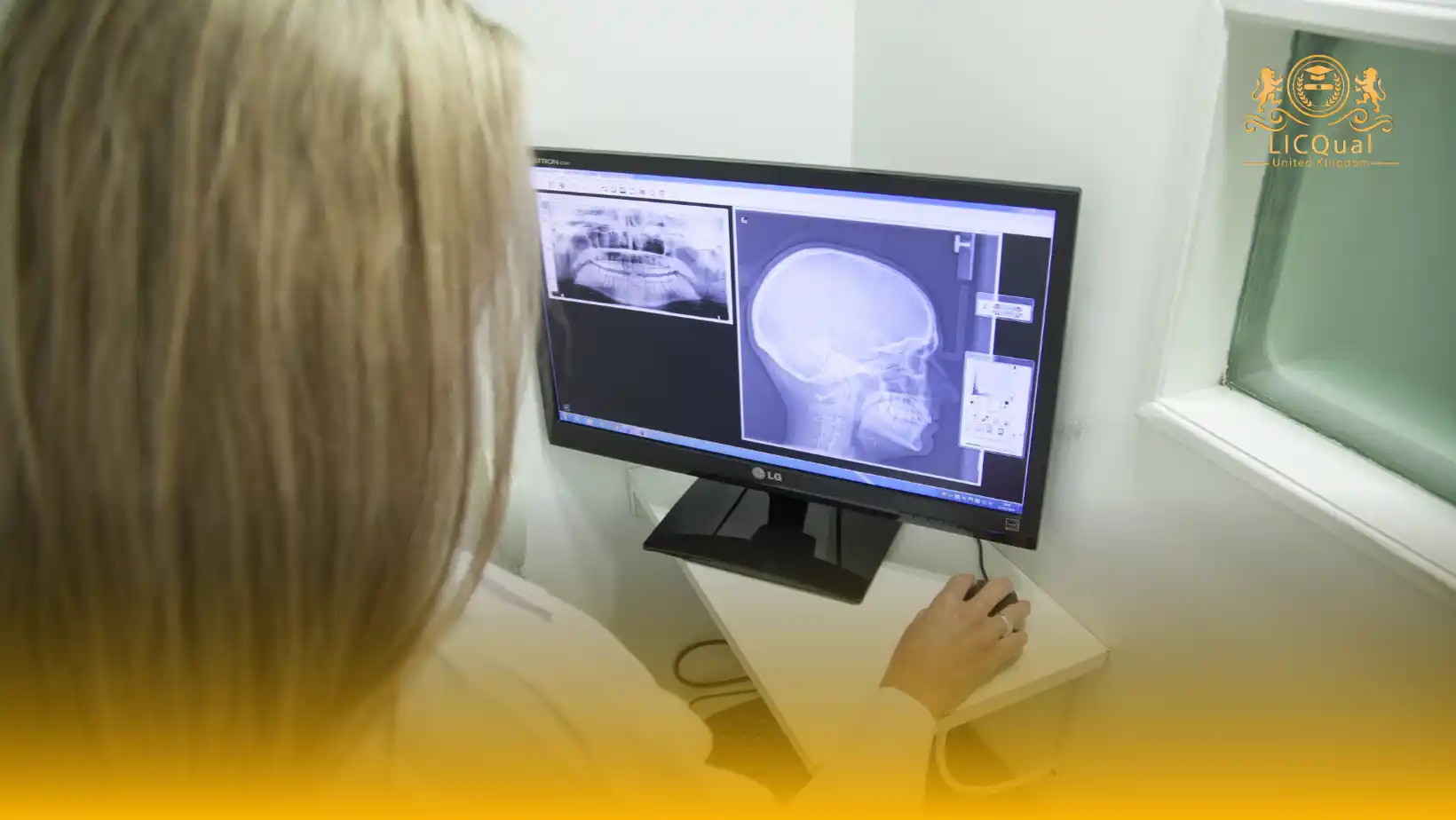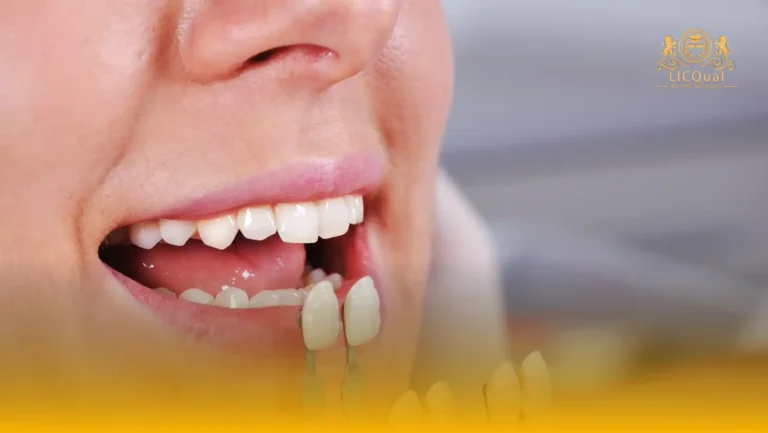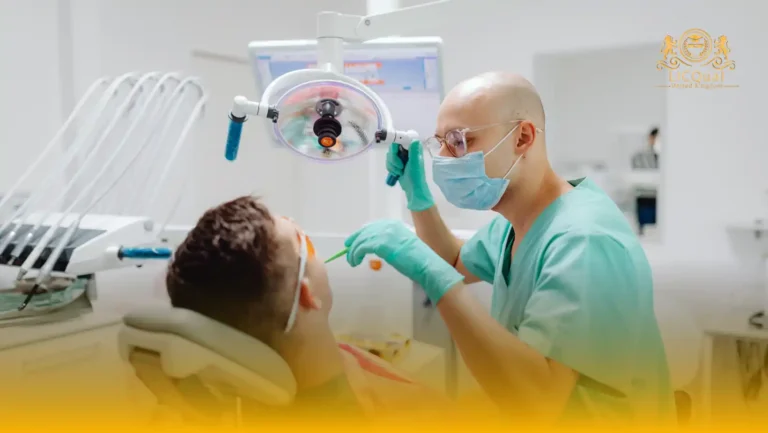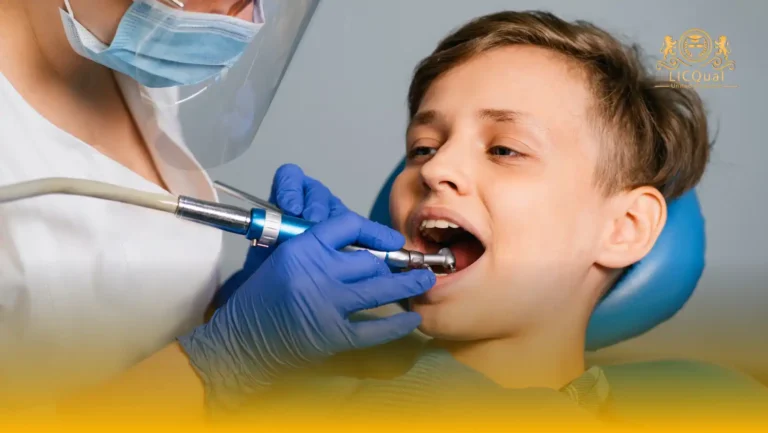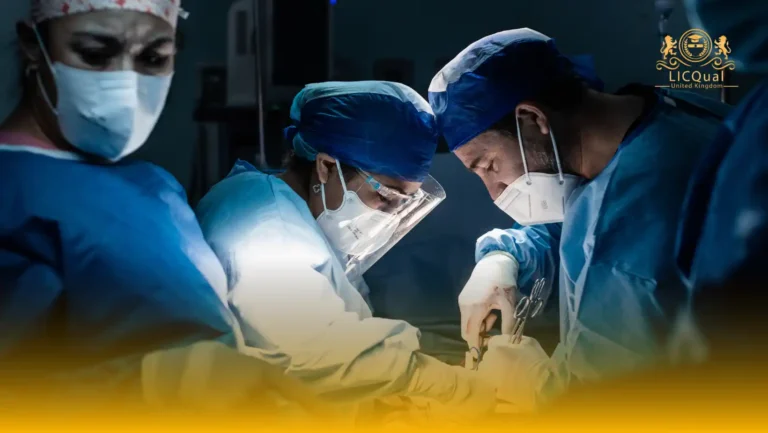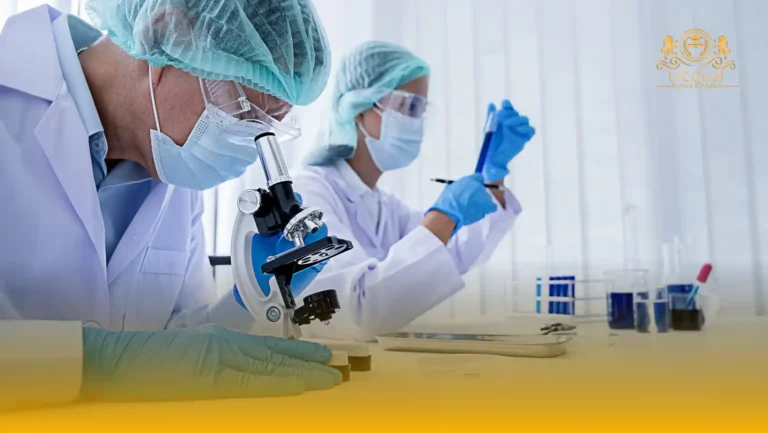Forensic Odontology
The LICQual Level 7 Postgraduate Diploma in Forensic Odontology (PgDFO) is an advanced professional qualification designed for experienced dental practitioners and forensic specialists who wish to expand their expertise in the application of dental science to legal and investigative contexts. This programme provides learners with comprehensive knowledge and practical skills to accurately analyse dental evidence, contribute to criminal investigations, and support legal proceedings with high professional standards.
This qualification is not intended for fresh learners; it is tailored for practising professionals seeking to enhance their career prospects, deepen their specialist knowledge, and strengthen their Continuing Professional Development (CPD) portfolio. Learners will explore advanced topics including bite mark analysis, human identification, age estimation, trauma assessment, and the medico-legal aspects of forensic dentistry.
The course combines theoretical study with practical application, ensuring learners develop the competence to handle forensic cases with precision and ethical responsibility. Emphasis is placed on evidence-based practice, meticulous documentation, and the integration of forensic odontology within broader investigative and legal frameworks.
By completing the PgD in Forensic Odontology, learners will acquire the skills to contribute effectively to law enforcement, legal investigations, and forensic research. This qualification enhances professional credibility, supports career progression in forensic and dental specialities, and empowers learners to operate confidently in high-stakes, multidisciplinary environments. It is an ideal pathway for dental professionals committed to advancing their expertise and making a significant impact in the field of forensic science.
Course Overview
Qualification Title
LICQual Level 7 Postgraduate Diploma in Forensic Odontology (PgDFO)
Total Units
6
Total Credits
120
GLH
600
Qualification #
LICQ2200700
Qualification Specification
To enroll in the LICQual Level 7 Postgraduate Diploma in Forensic Odontology (PgDFO) , applicants must meet the following criteria:
|
Qualification# |
Unit Title |
Credits |
GLH |
|---|---|---|---|
|
LICQ2200700-1 |
Principles of Forensic Odontology |
20 |
100 |
|
LICQ2200700-2 |
Human Identification and Dental Records |
20 |
100 |
|
LICQ2200700-3 |
Bite Mark Analysis and Trauma Assessment |
20 |
100 |
|
LICQ2200700-4 |
Age Estimation and Growth Assessment |
20 |
100 |
|
LICQ2200700-5 |
Forensic Investigation and Legal Procedures |
20 |
100 |
|
LICQ2200700-6 |
Clinical Practice, Case Management, and Research in Forensic Odontology |
20 |
100 |
By the end of this course, learners will be able to:
1. Principles of Forensic Odontology
By the end of this unit, the learner will be able to:
- Analyse the fundamental principles and scope of forensic odontology.
- Critically evaluate the historical development and current practices within the field.
- Apply professional and ethical standards to forensic dental practice.
- Integrate forensic odontology principles into investigative and legal contexts.
Knowledge Providing Task
2. Human Identification and Dental Records
By the end of this unit, the learner will be able to:
- Assess dental records and radiographs for accurate human identification.
- Apply techniques for identification in mass disaster, criminal, and medico-legal cases.
- Evaluate the accuracy and reliability of different identification methods.
- Maintain detailed and compliant documentation of forensic findings.
3. Bite Mark Analysis and Trauma Assessment
By the end of this unit, the learner will be able to:
- Analyse bite marks and dental trauma using standard forensic techniques.
- Demonstrate correct methods for evidence collection and documentation.
- Critically evaluate bite mark and trauma evidence in legal proceedings.
- Apply best practices to ensure the admissibility of dental evidence in court.
4. Age Estimation and Growth Assessment
By the end of this unit, the learner will be able to:
- Examine dental and skeletal indicators for age estimation.
- Apply radiographic and clinical techniques to assess dental development.
- Critically evaluate methods used in forensic age determination.
- Integrate age estimation findings into medico-legal case reports.
5. Forensic Investigation and Legal Procedures
By the end of this unit, the learner will be able to:
- Analyse the processes involved in forensic investigations and case management.
- Prepare medico-legal reports in line with professional standards.
- Demonstrate understanding of court procedures and expert witness responsibilities.
- Communicate dental evidence effectively to legal professionals.
6. Clinical Practice, Case Management, and Research in Forensic Odontology
By the end of this unit, the learner will be able to:
- Apply forensic odontology knowledge to real-world case studies.
- Develop comprehensive management plans for forensic dental cases.
- Critically evaluate research methodologies relevant to forensic dentistry.
- Demonstrate evidence-based practice and professional decision-making in complex cases.
The LICQual Level 7 Postgraduate Diploma in Forensic Odontology (PgDFO) is designed for dental professionals, forensic specialists, and legal practitioners who want to develop expertise in the application of dentistry in criminal investigations, human identification, and forensic casework. This program is ideal for those seeking internationally recognized qualifications, advanced forensic skills, and career progression in forensic dentistry, legal consultancy, and investigative roles. Whether you are a practicing dentist, a recent graduate, or a professional in law enforcement or forensic science, this diploma equips you with the knowledge, practical skills, and credibility to excel in this highly specialized field.
1. Practicing Dentists Seeking Forensic Specialization
- Ideal for licensed dentists interested in forensic and investigative dentistry.
- Provides training in bite mark analysis, dental identification, and postmortem examinations.
- Enhances ability to collect, analyze, and document dental evidence.
- Strengthens knowledge of legal procedures related to forensic dentistry.
- Offers globally recognized credentials to advance career opportunities.
2. Forensic Odontology Specialists
- Designed for dentists and odontologists focusing on forensic applications.
- Develops expertise in mass disaster identification and age estimation.
- Provides advanced training in forensic dental reporting and documentation.
- Enhances understanding of legal and ethical responsibilities in investigations.
- Builds credibility as a recognized forensic dental expert.
3. Dental Graduates and Early-Career Professionals
- Suitable for BDS, DDS, or equivalent graduates seeking postgraduate specialization.
- Builds foundational knowledge in forensic dental sciences.
- Prepares learners for Master’s-level forensic odontology programs.
- Increases employability in dental, forensic, and legal sectors.
- Encourages critical thinking and evidence-based decision-making.
4. International Dental and Forensic Professionals
- Tailored for professionals seeking UK-accredited forensic odontology qualifications.
- Offers flexible online learning for global accessibility.
- Aligns with international standards in forensic dental practices.
- Enhances recognition for career mobility and consultancy opportunities worldwide.
- Provides exposure to real-world forensic cases and investigative techniques.
5. Legal and Law Enforcement Professionals
- Suitable for lawyers, investigators, and law enforcement personnel involved in forensic cases.
- Provides understanding of dental evidence and courtroom reporting.
- Enhances ability to interpret forensic dental reports in legal proceedings.
- Strengthens collaboration between legal and dental teams.
- Supports professional development in forensic and legal investigation fields.
6. Dental Educators and Academic Researchers
- Designed for lecturers and trainers updating forensic dentistry curriculum.
- Incorporates latest techniques in bite mark analysis and human identification.
- Supports academic leadership and research contributions in forensic dentistry.
- Enhances credibility as an expert in forensic dental education.
- Provides opportunities for publishing case studies and forensic research papers.
7. Career-Oriented Professionals Seeking Global Recognition
- Ideal for those aiming for internationally recognized forensic odontology credentials.
- Enhances professional credibility and expertise in dental and forensic investigations.
- Opens pathways to advanced clinical, academic, or consultancy roles globally.
- Provides a career-boosting foundation in specialist forensic dentistry.
- Equips professionals to excel in multidisciplinary investigative and legal environments.
Centres delivering the LICQual Level 7 Postgraduate Diploma in Forensic Odontology (PgDFO) must meet the following criteria to ensure high-quality training, assessment, and learner support:
- Accreditation and Approval
- Must be an officially approved LICQual centre with valid accreditation to deliver Level 7 postgraduate dental qualifications.
- Centres must comply with LICQual’s quality assurance and regulatory standards for forensic and dental education.
- Qualified and Experienced Staff
- Trainers and assessors must hold recognised qualifications in dentistry and forensic odontology.
- Faculty should have substantial clinical and forensic experience, including human identification, bite mark analysis, and medico-legal reporting.
- Assessors must be trained in Level 7 assessment practices and internal verification procedures.
- Facilities and Resources
- Access to forensic and dental facilities equipped for practical case studies, evidence analysis, and documentation.
- Availability of forensic tools, imaging equipment, and secure storage for sensitive case materials.
- Compliance with health, safety, and infection control regulations.
- Learning Resources
- Provision of up-to-date academic materials, professional journals, and case studies in forensic dentistry.
- Access to digital learning platforms for interactive study, simulations, and learner support.
- Assessment and Quality Assurance
- Systems for practical, written, and oral assessments aligned with Level 7 standards.
- Secure maintenance of learner records, assessment evidence, and verification documentation.
- Learner Support
- Academic and pastoral support throughout the programme.
- Guidance on CPD, professional development, and career progression in forensic odontology.
These requirements ensure that learners receive professional, evidence-based, and high-standard training in forensic odontology, enabling them to develop the skills, knowledge, and competence required for specialised practice in this field.
Assessment and Verification
All units within this qualification are subject to internal assessment by the approved centre and external verification by LICQual. The qualification follows a criterion-referenced assessment approach, ensuring that learners meet all specified learning outcomes.
To achieve a ‘Pass’ in any unit, learners must provide valid, sufficient, and authentic evidence demonstrating their attainment of all learning outcomes and compliance with the prescribed assessment criteria. The Assessor is responsible for evaluating the evidence and determining whether the learner has successfully met the required standards.
Assessors must maintain a clear and comprehensive audit trail, documenting the basis for their assessment decisions to ensure transparency, consistency, and compliance with quality assurance requirements.

